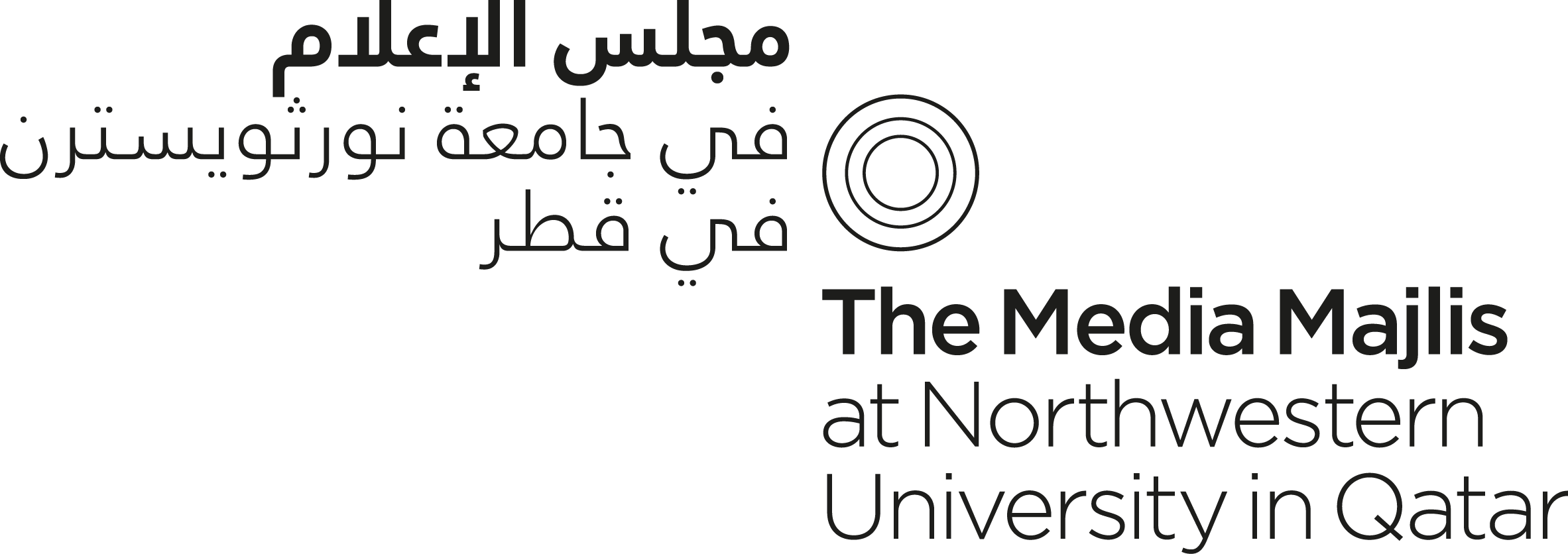
A video recording of this program is now available on the Explore Content section of this website.
Where do you get your inspiration from to make a film? Creative productions are often ‘based on a true story’ or ‘inspired by real events’—making a film about a story that’s not yours in an age where inconsistences can easily be pointed out is not an easy task.
In a discussion moderated by 360-degree filmmaker and journalist Julia Leeb, join filmmaker Hany Abu-Assad, screenwriter Joëlle Touma, and film director Ghassan Halwani in exploring the different ways they achieve authenticity and how they create stories and performances which audiences can empathize, identify and connect with. Come hear and be inspired by the stories these discussants have chosen to tell and leave us with a new toolkit on how to craft a variety of different stories.
[Image from Paradise Now (2005) directed by panel member Hany Abu-Assad. Image courtesy of Album and Alamy Stock Photo.]
-
Venue accessibility
-
Simultaneous translation
Simultaneous translation (Arabic/English) is provided for all programs.
-
Wheelchair accessibility
The Projection Theatre is fully wheelchair accessible and features multiple wheelchair spaces with unobstructed views of the stage and screen.
-
Sign Language interpretation
Sign Language interpretation (ASL and ArSL) may be requested for talks, discussions, lectures and tours. Please contact the museum well in advance of the program to discuss this service. You are welcome to bring an interpreter with you—please let us know ahead of time and we will ensure that appropriate seating is reserved. A program ticket does not need to be purchased for an interpreter providing prior notification of their attendance at a specific program is provided to the museum.
-
Wifi
Free wifi access is available in the building. On your mobile device, with wifi switched on, select Guest-NUQ-Majlis from the available services and accept the terms of service to connect.
-
-
Program credits
Julia Leeb
Julia Leeb (moderator) is a photojournalist and 360-degree/Virtual Reality (VR) filmmaker. The emphasis of her work is on regions in political upheaval; long-term projections include in the Democratic Republic of Congo, Egypt, Syria, Libya, Afghanistan, Sudan, and Iran. Leeb’s pictures from war-torn countries are published worldwide and she currently works as a video journalist and filmmaker in remote areas. In order to break mental borders, Leeb strongly believes in the increasing power of pictures and their capacity to explain complex political situations. Her book North Korea—Anonymous Country (2014) was featured on US National Public Radio, The Wallstreet Journal and other international publications.
Hany Abu-Assad
Hany Abu-Assad is a Dutch-Palestinian film director, writer and producer. His films Omar (2013) and Paradise Now (2005) both received nominations for Academy Awards. Omar follows the love story of two Palestinians under occupation, while Paradise Now adds new meanings and understandings to terrorism and oppression. While Abu-Assad studied aerodynamics, he pursued a career in film starting with documentaries for the BBC and Channel 4 in the UK, including Dar o Dar (1990) and Long Days in Gaza (1991). His most recent feature The Mountain Between Us (2017) starred Kate Winslet and Idris Elba.
Joëlle Touma
Joëlle Touma started writing screenplays in 1998, whilst a TV host and an actress in Lebanon. She then became the Beirut correspondent for the French daily Libération and the Belgian daily Le Soir, also working as a local producer in Lebanon with several media outlets. Since 2006 she has been dedicated to writing screenplays. She has worked with Ziad Doueiri on Lila Says (2004), The Attack (2011) and The Insult, nominated for an Oscar for Best Foreign Film in 2018, and Rachid Bouchareb on Just Like a Woman (2011). She also wrote for Le Bureau des Légendes, a French series produced for Canal+ and is developing two new feature films, one with director Rachid Bouchareb and the other with Ziad Doueiri.
Ghassan Halwani
Ghassan Halwani lives and works in Beirut. After directing and producing the short-animated film Jibraltar (2005), he has been mainly involved in collaborations with Lebanese and Arab filmmakers, playwrights, contemporary artists, publishers, and musicians. Erased, Ascent of the Invisible (2018) is his first feature film. Besides his artistic engagements, his work focuses on the public and political spheres—he is currently contributing to the creation of a national archive dedicated to enforced disappearances in Lebanon. In parallel, he is collaborating on research towards a film about the National Master Plan and the regulation of land and property in Lebanon.
